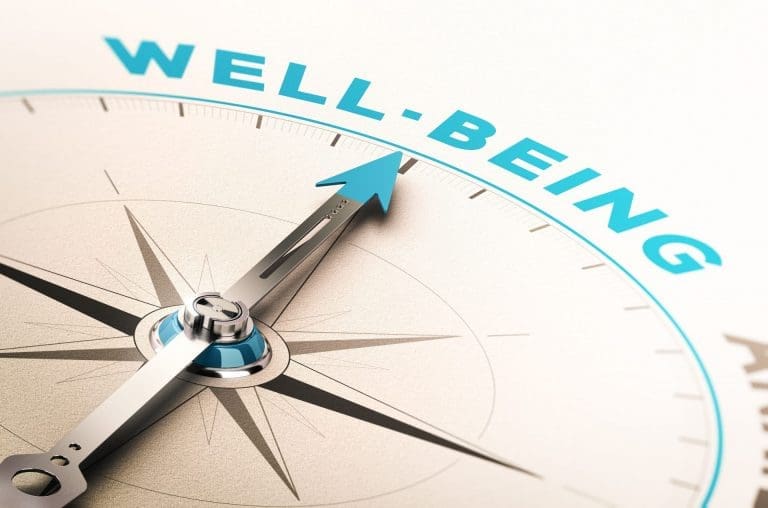
Sports Psychology Tips: Creating a Mentally Healthy Sporting Environment
Is the culture you and your organisation create helping your athletes or players?
Most professional clubs, academies and governing bodies managerial staff are well versed in trying to ensure that their players or athletes are technically skilled and tactically well versed. As well, making sure that their athletes have and continue to develop the necessary physical components so that they can perform at their peak is seen as important for many, too. However, where many find themselves lacking is in having good processes in place and creating a culture that addresses the importance of mental health in sport for their players.
The senior managerial team’s role in supporting their athletes well-being and mental health has been a grey area for a long time, however it is slowly changing, thankfully. The complexity has meant that many sporting clubs and organisations have turned a blind eye to it. Today, though, it is noticeable that more and more organisations are putting procedures in place for their athletes as they recognise the impact of the COVID-19 pandemic and also the links between well-being and optimal performance.
A happy athlete is more likely to go out there and perform freely without fear
What managerial staff need to understand is that an athlete’s well-being or mental health may suffer before or during their time at the club or organisation. An unhealthy culture and environment, the pressure of their sporting situation or a training ground incident can cause considerable stress for some athletes which can go on to contribute towards the development of a mental illness.
According to Mental Health Charity MIND, “Approximately 1 in 4 people in the UK will experience a mental health problem each year. In England, 1 in 6 people report experiencing a common mental health problem (such as anxiety and depression) in any given week. Worries about things like money, jobs and benefits can make it harder for people to cope.”
If we consider the impact of the Coronavirus Pandemic, “young adults have experienced a number of pandemic-related consequences, such as closures of universities and loss of income, that may contribute to poor mental health. During the pandemic, a larger than average share of young adults (ages 18-24) report symptoms of anxiety and/or depressive disorder (56%) according to KFF.org.
In elite sport, we don’t know for sure whether there are more cases of mental health problems, however, what we do know is that it is a topic which is being talked about more and more. More athletes are being open about their challenges; most days in the media, an athlete shares their story which can only be a good thing.
From a business perspective, a Labour Force Survey in 2019 revealed that 602,000 workers suffered from work-related stress, depression or anxiety (new or longstanding) in 2018/19. They also found 12.8 million working days were lost due to work-related stress, depression or anxiety. Things that contributed to the work-related stress, depression or anxiety were changes at work, violence, threat or bullying, lack of support and workload.
Why should athletes be immune to this?
When you consider the things that athletes have to go through they certainly aren’t. In my work I’ve supported and counselled athletes through:
- Managerial and coaching team changes
- Serious injuries
- Losing their place in a squad or team
- Retirement or pending retirement from their sport
- Receiving threats from fans
- Losing funding or being released
- Not knowing whether you will be able to continue in your sport because of a lack of sponsorship
- Dealing with being bullied by team-mates or coaches
- Working in toxic environments with a blame culture
- Moving and trying to perform in a new country
- Losing skills and developing the “yips” or “lost move syndrome”
- The death of loved ones
- Playing the role of substitute where you only get a small window of opportunity to showcase your skills
And all this is without considering the pandemic and it’s long term impact on individuals. Then you also have the sacrifices that athletes make to try to get to the top of their chosen sport and the immense pressures to perform that are placed on them by themselves and other people.
Additionally, the world that we now live in that is “always-connected” which can leave little time for rest. Which for an athlete is so important and is emphasised by US Basketball star LeBron James who reportedly spends $1.5m per year on his well-being to ensure that he is personally in tip top shape. Where he has a home gym, personal trainers, therapists, chefs and much more to help him.
With the rate of technological advancements not likely to slow down, it means that if clubs and organisations want to see their athletes performing at the best, consistently, with a smile on their face, they seriously need to consider having proactive measures in place that foster positive mental wellbeing and help their athletes develop resilience qualities.
A good starting point for managerial staff in clubs and governing bodies is to be clear what we mean by terms that are linked to mental health and well-being. See below for some examples:
Mental Health
“A person’s condition with regard to their psychological and emotional well-being.”
“The definition of mental health in the national ‘No Health without Mental Health‘ policy is that it is a positive state of mind and body, feeling safe and able to cope, with a sense of connection with people, communities and the wider environment.”
Mental Health Disorders
“Mental disorders comprise a broad range of problems, with different symptoms. However, they are generally characterised by some combination of abnormal thoughts, emotions, behaviour and relationships with others. Examples are schizophrenia, depression, intellectual disabilities and disorders due to drug abuse. Most of these disorders can be successfully treated.”
“Mental health disorders take many different forms and affect people in different ways. Schizophrenia, depression and personality disorders are all types of mental health problem.”
In the past, mental health symptoms have in the main been divided into groups. They are classed as either ‘neurotic’ or ‘psychotic’ symptoms. ‘Neurotic’ refers to those symptoms which can be regarded as severe forms of ‘normal’ emotional experiences such as depression, anxiety or panic. ‘Neuroses’ are now more often called ‘common mental health problems.’
‘Psychotic’ symptoms, which are less common, are those that interfere with a person’s perception of reality. This may include the person having hallucinations. That is they see, hear, smell or feel things that no one else can.
“There is no single cause of mental health problems and the reasons why they develop are complex.”
Mental Distress
People with mental distress may experience problems that affect the way they think, feel and behave. The term ‘mental distress’ is used to describe a range of mental health issues, from the more common problems such as anxiety and depression, to the less common, such as schizophrenia.
Types of Mental Distress
According to the 2014 Adult Psychiatric Morbidity Survey, the most common mental disorder in England is mixed anxiety and depression, which affects 7.8% of people.
Following depression, the most common conditions include:
- Generalised anxiety disorder (GAD)
- Anxiety
- Obsessive-compulsive disorder (OCD)
- Panic disorder
- Post-traumatic stress disorder (PTSD)
This information has come from the Oxford Dictionary, the World Health Organisation (WHO), Mind and NHS UK.
Who should support these mental health in sport issues?
As a HCPC Registered Sport and Exercise Psychologist, I do not get involved in the issues above, as well as eating disorders, which are very common in sport. I refer clients who present these types of issues on to a Clinical Psychologist or a Counselling Psychologist, many of whom I know and work with from time to time.
Where I do support athletes is with their well-being, when they experience having good mental health so that that they can perform to their best. Also, a large part of my role is developing an athlete’s resilience levels so that they can deal better with daily stressors and sporting pressures.
Well-being
“Well-being is the experience of health, happiness, and prosperity. It includes having good mental health, high life satisfaction, a sense of meaning or purpose, and ability to manage stress. More generally, well-being is just feeling well. Well-being is something sought by just about everyone, because it includes so many positive things — feeling happy, healthy, socially connected, and purposeful.” – Psychology Today
Resilience
“The capacity to recover quickly from difficulties; toughness.” – Jackson & Watkin.
“The ability to be happy, successful, etc. again after something difficult or bad has happened.” – Cambridge Dictionary.
This forms a large part of my work with sporting clients so that they are better able to accurately analyse sporting or life events and situations that they have to deal with. My role is to help them see a number of alternative scenario’s because often less resilient athletes can get caught up only considering one option. By using motivational interviewing techniques, I also help athletes change their focus so that they see situations for what they are and look at them as challenges as opposed to problems.
What Professional Clubs and Organisations could do to foster mental health in sport
Positive mental health and optimal well-being is best supported by having proactive resilience initiatives in place, rather than reactive measures. Having resilience strategies in place studies suggest that well-being factors could increase by up to 25% which means athletes would come in to training and matches feeling more optimistic. They would handle change better and they’d be more motivated and better able to regulate their emotions. This would likely mean improved performances which is what is considered to be the main focus of elite sport.
To get in touch to find out more about the Mental Health and Resilience workshops and programmes that we provide for clubs and organisations, click the button below.
You can also join our online community – THE SPORTS PSYCHOLOGY HUB – for regular Sports Psychology tips, podcasts, motivation and support.

Best Wishes
David Charlton
Global Sports Psychologist who is located near Newcastle Upon Tyne, UK and willing to travel Internationally. David also uses online video conferencing software (Zoom, Facetime, WhatsApp) on a regular basis and has clients who he has supported in USA, Canada, South America, UAE, Australian and New Zealand.
Managing Director – Inspiring Sporting Excellence and Founder of The Sports Psychology Hub. With over 10 years experience supporting athletes, coaches, parents and teams to achieve their goals, quickly.
T: +44 7734 697769







